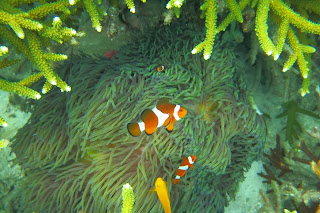November was filled with GIN events, planning, and action:
BeiGIN: Beijing Global Issues Network Conference
 |
| The theme of the conference: Hope, Humanity, Opportunity |
From November 8th to 10th, 24 delegates from SAS's GIN club attended a conference in Beijing. Each of us were placed in Global Action Network Groups (GANGs) to brainstorm solutions to problems prevalent in South East Asia. I was in the Biodiversity and Ecosystems Loss GANG. Collaborating with people from Vietnam, Myanmar, and Thailand was an eye-opening experience, as we had to think about how solutions would be implemented given specific circumstances in each of these countries.
After attending and facilitating a GANG in last year's GINSING conference, however, I definitely feel that BeiGIN could have been more effective. Many of the actions we discussed were already in place at SAS, including a week-long environmental science trip to study the integrity of an ecosystem (Tioman!), article publishing in school
periodicals (Crossroads and the Singapore American), and cultivating an eco-garden on campus (I'm a part of SAVE's eco-garden committee and our plans are currently being evaluated by administration).
 |
| On the Great Wall |
Bundled up in the 5 degree C air, climbing up the Great Wall, and hunting for restaurants at 10 pm, all of us GIN members and officers bonded over this trip. It was a great end to fall break.
Middle School GIN Mentoring - Success!
Every Tuesday, high school GIN members and officers, including me, help middle school students interested in global issues, in their own GIN club. And as a part of SAS GIN, Service Council, and Wish for Kids (club)'s Wish for Tabuelan fundraising initiative for families devastated by Typhoon Haiyan, Middle School GIN took up the opportunity to raise thousands of dollars in the form of a competition. They used a coin-point system to increase competition among the sections of each grade, using an ice-cream treat at the end as the main motivator (food always works). In 7 days, this Coin Craze for Cebu has raised about $12,200! That's a large contribution to the school wide fundraiser that has raised $59,036.77 to date.
Speaker Series
GIN wrapped up its speaker series for the semester with World Vision, a disaster relief agency dedicated to helping children, and Emma Freedman, a teen conservationist who started Jungle Heroes. We had a decent turnout for each talk and are glad that other students are taking interest in our GINitiatives.
 |
| Emma Freedman's poster |
Happy Thanksgiving to everyone! Enjoy your days off and get some extra sleep. Consider going easy on the turkey; you owe the planet!





